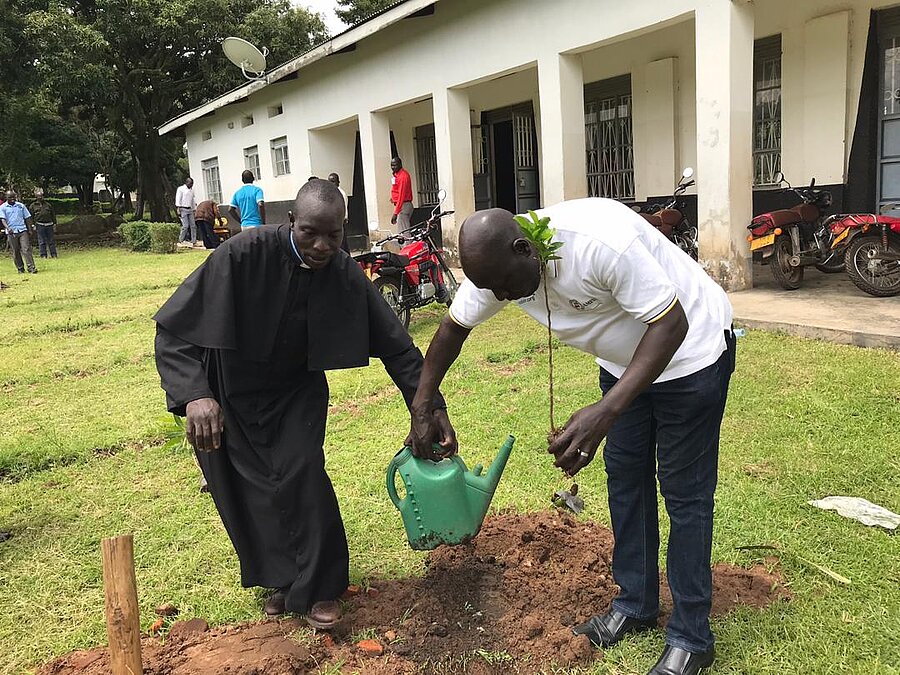Sustainable finance generally refers to the process of taking due account of environmental, social and governance (ESG) considerations when making investment decisions in the financial sector, leading to increased longer-term investments into sustainable economic activities and projects. Aligning financial systems with sustainable development does not happen automatically. The increasing scale and sophistication of Africa’s financial systems alone will not achieve it either because financial institutions can and often do become detached and fail to adequately serve the long-term needs of inclusive sustainable development. Advantages for adopting sustainable finance standards by supports institutions’ direct contribution to social, climate and environmental impact, brand positioning, sustainable growth and profitability, access to affordable funding opportunities, access to technical assistance funds and tax rebates.
Since 2014, a new market of green bonds, issued by corporates and financial institutions, has grown rapidly. In 2018, Standard Chartered issued the world’s first blue bond, on behalf of The Republic of Seychelles, and raised US$15 million from impact investors to finance the expansion and transition of its marine protected areas, improve governance of priority fisheries and develop its blue economy. With a steady increase in new issues, it is clear that investors are keen to buy these forward-looking securities; they support their responsible investment strategy and their wider sustainability ambitions.
Financing and sustainability go hand in hand. Financial institutions and non-governmental organizations remain key determinants of global capital flows. Banks have a powerful tool; financing - to promote change. The world has an opportunity and obligation to leverage banking knowledge, products, and footprint to provide client solutions which not only make financial sense, but also have a positive and lasting impact on our communities and environment.
But how can investors, institutions and organizations know that sustainable finance projects are really making a positive contribution to society and the environment? How do they contribute in terms of energy efficiency, reduced carbon dioxide emissions, resource efficiency and support societies to improve their livelihood? More importantly, how can the momentum be sustained to ensure a green revolution and be sure that the promised green does not turn out as a faded blue or brown?
Defining universally accepted sector specific principles and standards that control their modus operandi is very significant in not only tracking adoption but also sustaining implementation of green practices. For example, it is against this backdrop that the Kenya Bankers’ Association (KBA), the banking sector-led initiative came together in 2013 to put together the SFI Principles: a Kenya-specific set of harmonized guidelines for sustainable development to be adopted across the industry in pursuit of meeting Vision 2030. Twelve of Kenya’s biggest banks were on the working group behind the principles. It takes a collective approach to deliver collective results.
With universal principles and standards, investors, institutions, and end beneficiaries can monitor, measure and report on their activities based on set goals against specific results. For example, investors will issue funds to support clearly defined objectives, financial institutions will design appropriate products and services to support the investors’ vision while end beneficiaries will receive funds to implement activities that translate the vision into a reality. This symbiotic association makes it very easy to identify sustainable clients and transactions in banking loan books, develop simple but detailed client assessments and an appropriate transaction scorecard to help the front office identify the deals that contribute to a sustainable economy.
In addition, frameworks with an extensive list of criteria to select the best-in-class transactions with the most environmental and social benefits helps investors to filter and identify deals that apply high standards, take all stakeholders into consideration and, importantly, have no associated controversies. This comprehensive screening process and seeing through lens of nonpartisan partners helps investors and institutions to learn even more about the selected deals and their sustainability performance. It reminds all parties that there are many different factors in determining what deserves a sustainable label. What is sustainable for one person, may not be so for another.
There is need for countries to work closely with impact investors to unlock available finance to support Sustainable Development Goals. Committees charged with responsibilities of mainstreaming impact investment, fostering collaboration between key players, supporting favorable policy development, and engaging with government and policy influencers should be constituted to ensure cooperation and commitment by players. Policies should include social aspects that simplify tax processes for small businesses and social enterprises since one of the greatest challenges faced in developing markets is lack of enough investment-ready enterprises. This results in investors competing for a smaller pool of investment-ready enterprises thus distorting the market, leading to higher valuations, and investing in the same businesses.
Mitigation measures include solutions such as sharing of deal flow, sharing due-diligence costs, and providing pre-investment support to increase the number of investment ready enterprises. Company-investor dialogue on well-defined financial, social, and environmental requirements, practices and reporting guidelines on sustainability related index remains very important. It is encouraging to know that green can always be more green as long as we keep painting!

